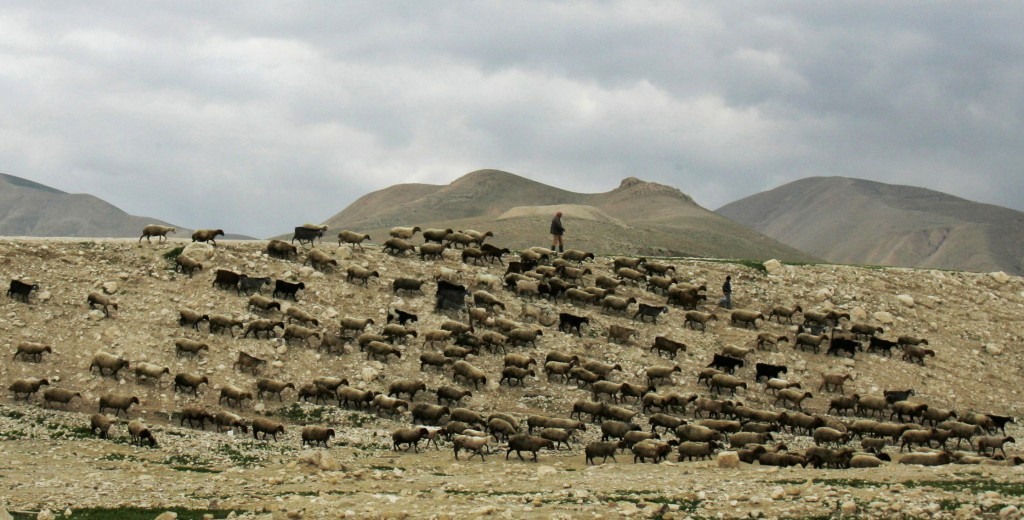PA Sheep Boycott, Israeli Vegetable Boycott Declared Over

Defense Minister Naftali Bennett on Thursday announced that an Israeli boycott of agricultural products from the Palestinian Authority was over, after the PA relented on its boycott of Israeli sheep and calves. The Israeli boycott was instituted earlier this month, after the PA declared last September it would no longer buy animals from Israel.
The PA began banning the import of live sheep and calves from Israel, similar to a ban on the import of Israel-produced mutton, which was implemented in 2018. Israel retaliated against that ban by preventing the import of PA agricultural products, and the PA lifted its ban. The bans on Israeli imports were part of efforts to “disengage” the PA economy from that of Israel.
The ban had hurt the incomes of Israeli farmers, but it turned out that the real victim of the ban was the Palestinian consumer, who saw the price of fresh lamb and veal skyrocket in recent weeks, as Israeli-grown animals constitute a large part of the meat supply in the PA – as much as 90% of the market. The PA market for live sheep and calves is worth about NIS 700 million annually, with some 600 moshav families and 1,800 workers affected.
A deal was worked out between Israeli and PA negotiators to allow more PA produce into Israel in exchange for an end to the boycott – and while Israel has indeed increased import allocations of PA-grown fruits and vegetables, Israeli cows and sheep were still largely banned from the PA. After numerous threats, Bennett announced in early February that Israel would no longer allow the PA to export vegetables to Israel. PA sources said that the ban had had a “very bad effect” on PA farmers, and the Israeli ban was a key factor in the PA decision to lift its boycott.
To Read The Full Story
Are you already a subscriber?
Click "Sign In" to log in!

Become a Web Subscriber
Click “Subscribe” below to begin the process of becoming a new subscriber.

Become a Print + Web Subscriber
Click “Subscribe” below to begin the process of becoming a new subscriber.

Renew Print + Web Subscription
Click “Renew Subscription” below to begin the process of renewing your subscription.












